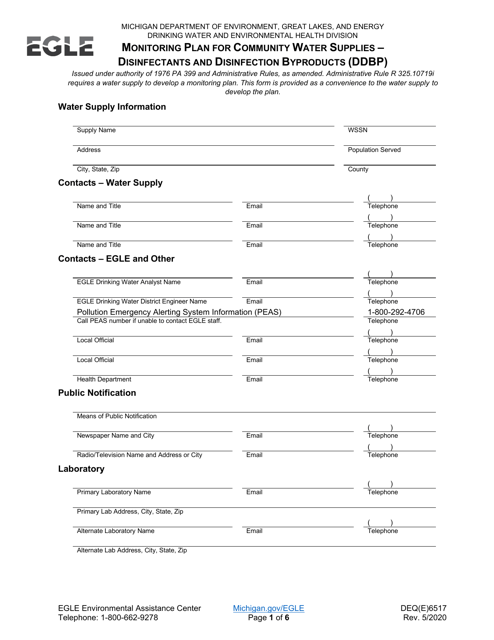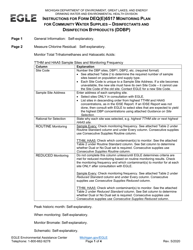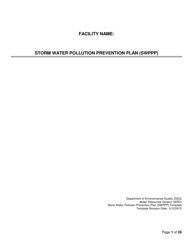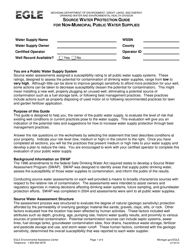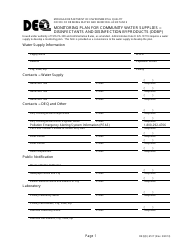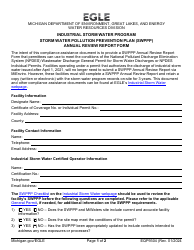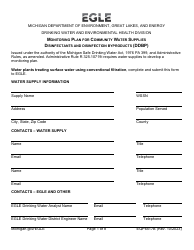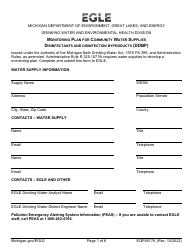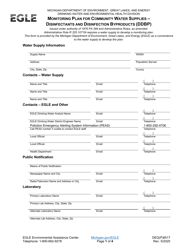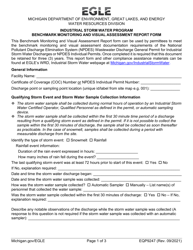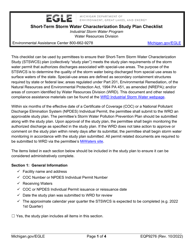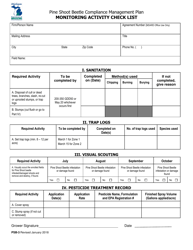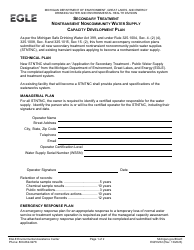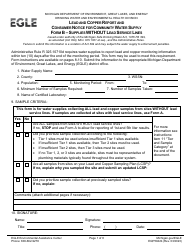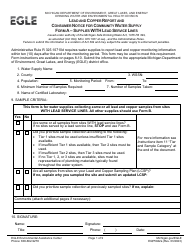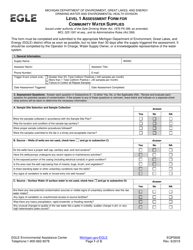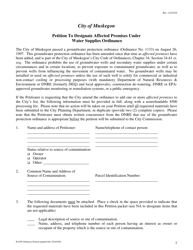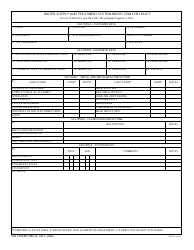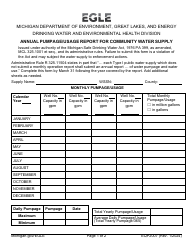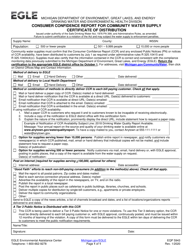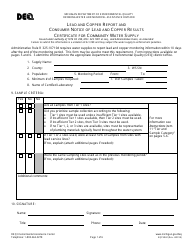Form DEQ(E)6517 Monitoring Plan for Community Water Supplies - Disinfectants and Disinfection Byproducts (Ddbp) - Michigan
What Is Form DEQ(E)6517?
This is a legal form that was released by the Michigan Department of Environment, Great Lakes, and Energy - a government authority operating within Michigan. Check the official instructions before completing and submitting the form.
FAQ
Q: What is DEQ(E)6517 Monitoring Plan?
A: DEQ(E)6517 Monitoring Plan is a plan for monitoring disinfectants and disinfection byproducts in community water supplies in Michigan.
Q: What are disinfectants and disinfection byproducts (DDBPs)?
A: Disinfectants are chemicals used to kill or inactivate microorganisms in water, while disinfection byproducts (DDBPs) are chemical compounds that can form when disinfectants react with organic matter in water.
Q: Why is monitoring disinfectants and DDBPs important?
A: Monitoring disinfectants and DDBPs is important to ensure that the drinking water supplied to communities is safe and meets regulatory standards.
Q: Who is responsible for monitoring disinfectants and DDBPs in Michigan?
A: The Michigan Department of Environmental Quality (DEQ) is responsible for monitoring disinfectants and DDBPs in Michigan.
Q: What is the purpose of the DEQ(E)6517 Monitoring Plan?
A: The purpose of the DEQ(E)6517 Monitoring Plan is to establish a comprehensive monitoring program for disinfectants and DDBPs in community water supplies in Michigan.
Q: What parameters are monitored in the DEQ(E)6517 Monitoring Plan?
A: The DEQ(E)6517 Monitoring Plan includes monitoring for disinfectant residual levels, chlorine dioxide, chlorite, chlorate, as well as various disinfection byproducts such as trihalomethanes (THMs) and haloacetic acids (HAAs).
Q: How often is monitoring conducted under the DEQ(E)6517 Monitoring Plan?
A: The frequency of monitoring under the DEQ(E)6517 Monitoring Plan depends on the size and type of the water system, but generally ranges from monthly to quarterly.
Q: What happens if disinfectant or DDBP levels exceed regulatory standards?
A: If disinfectant or DDBP levels exceed regulatory standards, water suppliers are required to take corrective actions, such as adjusting disinfection processes or implementing additional treatment methods, to ensure compliance.
Form Details:
- Released on May 1, 2020;
- The latest edition provided by the Michigan Department of Environment, Great Lakes, and Energy;
- Easy to use and ready to print;
- Quick to customize;
- Compatible with most PDF-viewing applications;
- Fill out the form in our online filing application.
Download a printable version of Form DEQ(E)6517 by clicking the link below or browse more documents and templates provided by the Michigan Department of Environment, Great Lakes, and Energy.
